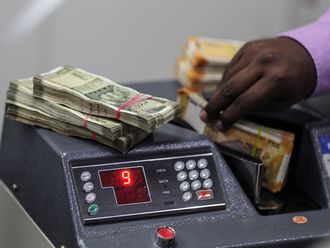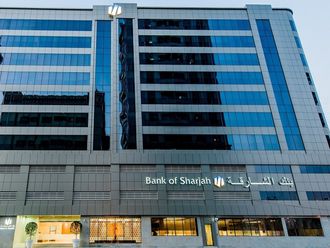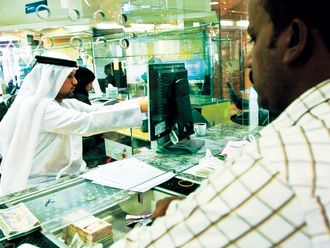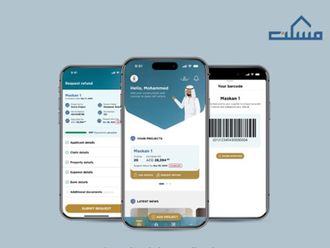
Looking back at 2015, we can see that the UAE banking industry continued to make big strides in digital transformation. A flurry of innovative launches by the big local banks included such features as remote cheque deposit, cardless cash, Emirates ID integration, and more mobile-first websites. Companies like Beam Wallet continue to set the benchmark for mobile payments, and for the first time, many UAE residents began making payments using their mobile phone – either at a retail store, or through their mobile banking bill payment feature.
While Apple Pay has not come to the UAE yet, it has certainly helped in bring about awareness of the future of mobile payments and a cashless society. Such publicity can only have accelerated the mainstream adoption of NFC and mobile wallets in the Emirates. The UAE’s love for gadgets and all things ‘millennial’ also means that digital banking is set for a bright future in 2016. Banks big and small have realised that the disruption caused by the likes of Uber, AirBnB and other digital businesses is not too far away from sinking its teeth into the UAE banking market. For 2016, UAE banks will move from a digital planning phase to a digital implementation phase.
Choosing a local digital strategy partner who can offer a combination of consulting, digital and technology services will be of utmost priority to banks in the region.
Blockchain
As far as self-led disruption goes, for many bankers the word ‘Blockchain’ will no longer be a concept buzzword discussed in the boardroom, and will now become a key project deliverable with very tangible results. Expect to see a battle for cross border FX transfer supremacy, and talk of how the trade finance industry will move towards the digitisation of the bill of lading. The ‘smart contract’ will be the new buzzwords for bank executives, and companies like Ripple and Ethereum will frequently pop up in discussions.
Blockchain will continue to dominate discussions throughout 2016, and expect to see a new wave of fintech startups that gain funding through bank accelerators and incubation vehicles, and command impressive valuations. Already in 2015, Blockchain demos and prototypes have begun getting attention among banks in the UAE , and the highly lucrative and competitive UAE-India foreign exchange corridor has seen banks up their game with services like Direct Remit.
Elsewhere, the opportunity for Blockchain technology to play its role in the UAE’s smart city evolution is significant. Within the Central Bank, Blockchain has the ability to transform the UAEFTS or local ‘fund transfer system’, and even radically change cheque clearing through the use of Blockchain smart contracts. Given the UAE’s active property market, another area where Blockchain could make big inroads is in the land registry and reinventing the process for dealing with title deeds, escrow and ownership transfer.
Data and Analytics
2016 will be the year when data and analytics finally get a decent, well designed front-end. For many UAE banks, the challenge has always been to gather, consolidate, structure and analyse their data. With significant investment already made in doing this, the fruits of this should now emanate in new contextual and valuable advice being given to customers in a bid to make life easier.
Beacons hidden everywhere will begin to send geo-location based alerts and relevant ‘advice’ to mobile apps, and UAE residents can expect to see things like retails stores and restaurants offering you great deals as you walk past them.
In airports, theme parks and hospitals, real-time advice from your bank or insurer will become more common, and when combined with mobile payments will change consumer behaviour. The degree to which organisations use their rich data to empower and educate their customers, will determine the leaders from the fast followers, and the rewards should make themselves visible through lower attrition, increased loyalty, and increased brand advocacy. For technology service providers, 2016 is set to be a year of business intelligence and big data analytics.
Robo-Advisers and Algorithms
In the wealth management, private banking and high-net-worth space, investment banks will look to embrace ‘digital’ and offer new solutions for managing and monitoring their clients’ portfolios. For many of these organisations, the journey towards building a truly digital bank could begin by building one from scratch.
Already in 2015, many large international banks have announced their intentions to do this, and this looks to be a growing trend for those UAE banks struggling to transform themselves, and overcome ingrained and old fashioned policies, change resistance and incapable legacy systems. Simple advice to banks is that building a digital bank as a greenfield project will probably cost a little more in the short term, but agility and survival are two great incentives that may justify the decision.
Elsewhere in the wealth management technology domain, customers can also expect to be given professional tools like robo advisers to empower self-service of their portfolio management, and help develop personal investment strategies that allow you to ‘follow the leader’ in portfolio performance. Banks will be able to determine your persona and allow you to financially compare yourself with others who have similar income and lifestyles. In 2016, the evolution of machine learning and automated trading algorithms will begin to show compelling results that will make these technologies hard to ignore, and those banks who have not invested in this area will do well to reconsider such decisions.
Biometrics
Banking in 2013 was all about omni-channel, then in 2014 we moved to digital channels, and finally in 2015 it was about phygital convergence. In 2016, it would seem that we will start to see the rise of Bio-Phygital. The mass adoption of biometrics across digital transaction channels is something that has been threatening to become a reality for some time, and with a combination of the Etihad Credit Bureau and the EmiratesID enabled eGate, it is likely that customers will soon start authorising financial transactions with either their fingerprint, face or voice recognition. It is more than likely that mobile banking and mobile payments will soon use biometric authentication to reduce fraud, and in 2016 we will see several banks that allow you to talk to them. This does not mean your branch manager, or your personal relationship manager, or the call centre.
What is refers to is the coming of age of natural language engines and artificial intelligence engines. Whether you have a preference for talking to Alexa, Siri, or Cortana,or perhaps the more mature Watson, banks will increasingly look to engage with customers at home or in a branch with a device that can understand your speech and have a natural dialogue in assisting you. What Amazon’s Echo (aka Alexa) has done for natural language adoption, is allow affordable Artificial Intelligence to be sitting alongside you in your living room.
Asking your Alexa-enabled bank app to give your account balance, bill details or initiate a money transfer will soon seem very natural, and could start to signal the dominant method for conducting transactional everyday banking. Traditional call centre agents should have a real cause for concern as this technology is improving day by day, and is likely to make many job roles redundant.
Accelerators, Fintech partnerships and Hackathons
Such is the urgency to connect with millennials and understand digital banking over the next 5 years that banks will continue to invest in Fintech and the disruptors looking to shake things up. What is clear nowadays is that the motives driving the Fintech revolution are those of simplification, honesty and transparency. The days of commanding large margins due to process complexity and infrastructure investment are long gone.
Banking in 2016 will be great for consumers, but not so great for banking bonuses. While there is a persistent withering away of the universal banking business model (often coined the unbundling of banking), by challenger Fintechs, there is also a willingness by both parties to partner. Increasingly throughout 2016 you will hear about banks creating accelerator startup funds, co-investing with young, ambitious entrepreneurs, and the ‘hackathon’ will increasingly become the event which inspires the next big thing in innovative ideation. Already in 2015,we have seen several successful financial hackathon events run by the likes of First Gulf Bank, EmiratesNBD, Gitex, and Synechron.
Summary
2016 looks to be a year of real progress for the UAE’s digital banking landscape. From a consumer perspective, all the great technologies that have been talked about over the past 2 years, should start becoming a reality. In a country with a large, transient expat population, paying for things and transferring value across the globe, will become near instantaneous processes with minimal friction. It is also likely that customers will start getting genuinely useful advice from their mobile apps.
In 2016, banks looking to engage with millennials will still struggle to find the Eureka answer, but it probably entails making your organisation more transparent, and simplifying financial services to the point where it is understandable. Financial inclusion will continue to be a motivating factor for improving margins and service levels in the UAE banks, who still face undesirable situations of busy branches with third party SME’s cashing multiple cheques at the end of each month.
Transformation for these banks may involve a product review and in some cases a product sunset, but will almost certainly mean that banks’ need to ‘rebundle’ what the Fintech startup industry is threatening to have as a cheap lunch.
- The writer is the Head of Innovation at Synechron












